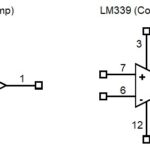Comparing times in Oracle can be tricky due to time zones and data type differences. This article addresses a common issue: comparing a timestamp with local time zone to a date column containing a date and time value within a subroutine. Understanding how Oracle handles these data types is crucial for accurate comparisons.
Understanding Oracle’s Time Zone Handling
Oracle stores timestamps with time zone information, allowing for accurate representation of time across different regions. When a timestamp with local time zone is passed to a subroutine, Oracle converts it to UTC. This conversion can lead to discrepancies if not properly accounted for. For instance, in a region with a +02:00 offset (including a 1-hour DST), the timestamp in the subroutine will appear two hours earlier than its value in the table.
On the other hand, Oracle’s DATE data type stores both date and time but without time zone information. Consequently, when a DATE value is passed to a subroutine, no conversion occurs. This difference in handling between timestamps and dates can result in a two-hour difference within the subroutine for values that appear identical in the table.
Addressing the Time Difference in Comparisons
A common solution to this problem involves adjusting the DATE value before passing it to the subroutine. One approach, suggested by Oracle expert Tom Kyte, uses the following formula:
date_val => table.date_val - (substr(sessiontimezone, 1, 1) || '1') * to_dsinterval('0 ' || substr(sessiontimezone, 2, 5) || ':00')This calculation subtracts the session’s time zone offset from the DATE value, effectively converting it to UTC. While this method works well in simple SELECT statements, it may not be effective in batch programs or database jobs.
Challenges in Oracle 9
Working with Oracle 9 adds another layer of complexity. While the principles remain the same, certain functions or features available in later versions might not be present in Oracle 9. This limitation necessitates careful consideration of available tools and workarounds. For instance, ensuring the sessiontimezone is consistently set within the batch program’s environment becomes crucial. Additionally, explicitly converting the DATE value to a timestamp with time zone using appropriate functions before comparison can be a more reliable approach. One example is using the FROM_TZ function:
FROM_TZ(CAST(table.date_val AS TIMESTAMP), sessiontimezone)This converts the DATE to a TIMESTAMP and assigns the session’s time zone to it, allowing for a consistent comparison with the UTC timestamp.
Best Practices for Comparing Time in Oracle
- Consistent Data Types: Whenever possible, use consistent data types for time comparisons. If dealing with time zones, utilize
TIMESTAMP WITH LOCAL TIME ZONEorTIMESTAMP WITH TIME ZONEfor all relevant columns. - Explicit Conversion: When comparing different data types, explicitly convert them to a common type, preferably
TIMESTAMP WITH TIME ZONE, before comparison. Utilize functions likeFROM_TZandAT TIME ZONEfor accurate conversions. - Understand Session Time Zone: Be aware of the session time zone and its impact on time comparisons. Set the session time zone explicitly if required using
ALTER SESSION SET TIME_ZONE = ...;. - Test Thoroughly: Test your code rigorously across different time zones and scenarios to ensure accurate results. Pay special attention to daylight saving time transitions.
This comprehensive approach ensures accurate time comparisons within Oracle, especially when dealing with different data types and time zones, even in older versions like Oracle 9. By understanding the underlying principles and utilizing appropriate functions, developers can avoid common pitfalls and ensure the reliability of their applications.

